Female Pelvic Medicine & Reconstructive Surgery Fellowship
Program Overview & Goals
Welcome to Loyola Medicine's Female Pelvic Medicine & Reconstructive Surgery (FPMRS) Fellowship program's webpage. We appreciate your interest in our fellowship program and hope that the information contained on our site provides a basic overview of the strengths and quality of training our fellows receive throughout the program.
The FPMRS Fellowship program at Loyola Medicine has a longstanding history of graduating fellows who become leaders in the field, many of them becoming program directors and carrying on the proud tradition of training future colleagues.
Goals of the Program
Our goal is to train academic leaders in FPMRS and urology. Specifically, we expect graduates to advance the science of the discipline through research, demonstrate excellence as mentors and educators, and provide outstanding clinical and surgical care.
Our fellowship program is also organized to optimally teach fellows the necessary skills as well as balancing in and out-patient clinical-surgical care, scholarship, and research. We believe learning to balance these activities during training is essential to continued success as academic leaders after graduation.
Educational Objectives of the Program
Following completion on the Female Pelvic Medicine & Reconstructive Surgery (FPMRS) Fellowship program at Loyola Medicine, the fellow must:
- Demonstrate clinical competence in the evaluation and treatment of female pelvic floor disorders.
- Be able to provide consultation and comprehensive management of women with complete benign pelvic conditions, lower urinary tract disorders and pelvic floor dysfunction.
- Master the knowledge and skills to work as a consultant to other physicians.
- Display understanding and experience with the scientific method of hypothesis generation and testing and have demonstrated this by participation in several clinical, translational and/or basic science research projects.
- Master the educational techniques for teaching of medical students, residents and peers.
- Attain the skills necessary for achieving excellence in an academic environment.
- Obtain the basic understanding of the physician’s role in a healthcare organization, the cost-effectiveness of patient care and the means by which improvements/changes in the healthcare institutions can be achieved.
Program Quick Facts
- Length of Training: 3 Years
- In House Call or Discipline or Origin Clinic Duty: None
- Date Program Initiated: 2000 (Transferred from Rush University where program initiated in 1990)
- Number of Graduates: 20
- Activities of Graduates: Division directors, fellowship program directors, academic physicians and private practice
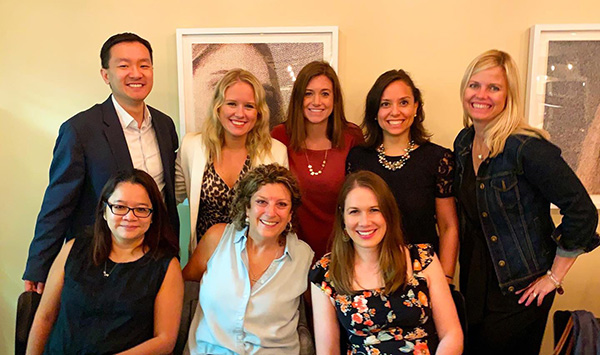
Top Row (left to right) – Dr. Yufan Chen, Dr. Hayley Barnes, Dr. Lauren Westbay, Dr. Marian Acevedo Alvarez, Dr. Colleen Fitzgerald
Bottom Row (left to right) – Dr. Thythy Pham, Dr. Elizabeth Mueller (Program Director), Dr. Megan Shannon
Educational Experience
The Loyola program is structured to emphasize fellow education well beyond the normal clinical contact hours. Wednesday’s are devoted to departmental and FPMRS divisional scholarly conferences. Wednesday mornings from 7 to 9 am, urology and obstetrics & gynecology hold departmental educational conferences. The urology department also holds conferences on Friday mornings from 7 to 9 am.
FPMRS faculty, and the fellow on their service, attends conferences of the faculty’s primary department. These conferences cover a variety of topics including informal seminars, clinico-pathologic conferences, morbidity/mortality conferences and journal clubs.
Following departmental conferences, all FPMRS faculty and fellows attend FPMRS divisional conferences, which include case conference, research conference and FPMRS conferences. This three hour block of time is protected and mandatory for both the faculty and fellows, demonstrating the high value all FPMRS faculty place on scholarship.
During the case conference and the FPRMS conference, we cover the FPMRS learning objectives as well as different aspects of the FPMRS curriculum. The case conference includes FPMRS faculty, fellows, residents and medical students as well as physical therapists, urologists, physiatrists and gastroenterologists.
During this conference, we formally present all surgical cases for the following week in addition to other “interesting”, multidisciplinary cases. This aspect of our curriculum includes discussion of the evaluation and management of pelvic floor disorders; however, it is also where we address peri-operative management of medical co-morbidities and risk factors such as deep vein thrombosis prophylaxis, bowel preparation, cardiac risk factors, etc. We use this opportunity to review the current literature on these topics.
The FPMRS conference is a didactic/problem-based learning session. The content and format of this conference varies. Fellows and residents are assigned topics selected from the “Guide to Learning in Female Pelvic Medicine & Reconstructive Surgery” sponsored by ABOG and ABU. This aspect of our curriculum covers each of the listed learning objectives every two years. Fellows also learn to evaluate the literature, prepare seminars, and practice their oral presentation skills.
Additionally, colleagues from other disciplines and the basic sciences regularly present their research during this conference. Faculty lead round table discussions on historic and current topics in FPMRS. We also separately cover issues of practice based medicine and coding during FPMRS Conference; although, these are routinely coverer during the fellow’s clinical education as well.
The research conference is held on Wednesday after the department educational conferences and is comprised of all involved FPRMS faculty, fellows, residents and staff involved in research activities. We review on-going trials and new study concepts from fellows and faculty and update the group regarding NIH Urinary Incontinence Treatment Network and Pelvic Floor Disorders Network activities.
Fellows learn about all aspects of research including study design, implementation, recruitment and retention strategies, data collection and management and data analysis and dissemination. This unique, regularly scheduled interdisciplinary research conference also teaches fellows the importance of teamwork and continued oversight for successful research.
Clinical Experience
We offer our patients a multidisciplinary approach to the evaluation and treatment of pelvic floor disorders in a newly constructed, state-of-the-art ambulatory center. Fellows are assigned to a single FPMRS attending for a three month block of time to enhance continuity of care. This provides fellows the opportunity to participate in initial patient consultation and evaluation; treatment (including surgical); as well as in- and out-patient follow-up.
The fellow assigned to a particular service is responsible for working with the attending, residents, and medical students to ensure efficient clinical/office flow, preparing patients for surgery, and overseeing patients’ care in the hospital after surgery. Fellows interact regularly with other pelvic floor subspecialists, including urologists, colorectal surgeons, physical therapists, and gastroenterologists.
Fellows develop clinical expertise in diagnostic and operative office endourology (cystoscopy, intravesical injection and stent removal), urodynamic testing, neurophysiologic testing of the pelvic floor, including electromyography and sensory nerve testing and pelvic floor ultrasound.
Our surgical practice is diverse, including a variety of procedures for urinary incontinence, pelvic organ prolapse, and fecal incontinence; complex fistulas; vaginal reconstruction; continent and incontinent urinary diversions; resection of bladder tumors; and endourologic procedures. Our fellows are well-trained in abdominal, vaginal, laparoscopic and robotic pelvic reconstructive surgery.
Fellow’s schedules are planned to enhance balanced research, scholarship, and clinical care. Fellows are prohibited from participating in non-emergent clinical care during research and academic time. Over the 18 years we have been at Loyola, this balance is well-established, and although, flexibility is necessary due to vacation and personal issues, the balance is working well for our fellow’s education.
Research Opportunities
Research continues to be a major emphasis and strength of Loyola’s FPMRS fellowship program. Understanding that the demands of clinical/surgical practice after graduation are sometimes perceived as barriers to the timely and successful progression as independent primary investigators by well-trained obstetrics & gynecology and urology fellows, we believe that training clinician-scientists, particularly in surgical specialties, is a creditable goal and that fundamental to this training is teaching fellows how to make research an integral part of their daily professional lives.
A fundamental philosophy and unique strength of our training program is that our fellows actively engage in dedicated clinical and translational research training, where they participate in on-going comparative effectiveness trials, recruitment and retention of research subjects, and development and implementation of independent clinical and translational studies during their entire three years of fellowship.
We believe research and research training should be a part of all aspects fellowship training and that integration of research and clinical care is a learned skill. We actively teach how to accomplish important research goals and become independent primary investigators after graduation WHILE still maintaining surgical practices; in life, these activities occur concurrently not in sequence, so to be successful, clinical-scientists must learn to integrate these skills.
We also recognize that demands of clinical practice often preclude active involvement of clinical faculty themselves in basic science research. Therefore, it is essential for FPMRS fellows to learn to dialogue, respect, and collaborate with basic science investigators.
To prepare for academic careers as independent clinical scientists in women’s health care and pelvic floor disorders, we require FPMRS fellows to acquire the following clinical research skills:
- Ability to critically analyze and review the literature.
- Ability to develop testable hypotheses.
- Ability to design clinical trials to test scientific hypotheses and treatment outcomes.
- Ability to write competitive research proposals and grants.
- Ability to disseminate scientific results in both written and oral forms.
- Understanding of interdisciplinary approaches to research in pelvic floor disorders.
Additionally, as evidence of their mastery of clinical research and potential to become independent clinician scientists, they are required to do the following prior to completion of the program:
- Prepare a NIH grant proposal, which they will have when they start their academic careers.
- Prepare and defend a written thesis.
The research training program is designed to provide each fellow with the mentorship, opportunities, and time to achieve each of the listed items. Fellows continue to develop more advanced hypotheses and design prospective studies during the three years.
We support and expect fellows to lead and participate in multiple high-quality research studies that result in publication. Part of the research curriculum includes a step-wise approach to concept development. They also have the opportunity to spend dedicated time in a basic science laboratory or develop translational projects with the help of basic science faculty.
Believing that fellow education is paramount, all faculty have dedicated weekly academic time to meet fellows for one-and-one mentoring at the fellow’s discretion. We also believe adult education should be tailored to the individual’s goals and allow off-site and overseas electives when appropriate.
Scientific Meetings
We fully support and encourage the fellows to present and participate at national and international conferences, such as the American Urogynecologic Society, the American College of Obstetricians and Gynecologists, the American Urological Association, the Society of Gynecologic Surgeons, the Society of Urodynamics and Female Urology, the North Central Association of the AUA and the International Continence Society meeting.
The fellows are expected to attend, at a minimum, the American Urogynecologic Society annual meeting. Other scientific meetings may also be selected with the approval of the fellowship director.
Benefits of the Program
- Health insurance
- Dental insurance
- Life insurance
- Long-term disability
- Supplemental retirement annuities
- Worker’s compensation
- Parking
- Reimbursement accounts
- Travel to American Urogynecologic Society Annual Meeting
- Additional stipends for presentations and/or educational meetings are determined on a case-by-case basis
- Loyola Center for Fitness resident/fellow membership discount
Master's Degree
Loyola University Chicago offers two degree seeking graduate programs for fellows. Interested FPMRS fellows are encouraged to obtain either a Master of Arts in Bioethics or a Master of Science Degree in Clinical Research Methods during their fellowship, starting in their 2nd year of training.
Salary
- PGY-5: $77,426
- PGY-6: $80,557
- PGY-7: $83,442
*2023-2024 figures
Meet our Faculty
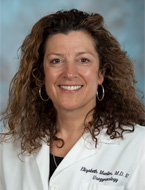
Elizabeth Mueller, MD, MSME
Elizabeth Mueller, MD, MSME, is the Division Director of the Female Pelvic Medicine & Reconstructive Surgery at Loyola Medicine. She is a board certified urologist and is also board certified in FPMRS. She is a professor in urology and obstetrics and gynecology.
Dr. Mueller brings the expertise and experience of her urologic training to the daily care of our patients and education of our fellows. Her special interests include surgical anatomy, urodynamics, and 3D pelvic floor ultrasound.
She successfully united her special interests and enthusiasm for teaching and education to develop several novel teaching tools, including an integrated, surgical anatomy lecture and dissection series for gynecology and urology residents and a formal, nationally accepted educational curriculum on urodynamics for urology residents. She is an NIH funded investigator.
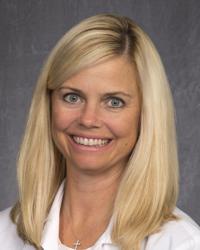
Colleen Fitzgerald, MD, MS
Colleen Fitzgerald, MD, MS joined the FPMRS division in 2013 and has brought a unique dimension to this diverse group of urogynecologists.
She is board certified by the American Board of Physical Medicine and Rehabilitation and received her residency training at the Rehabilitation Institute of Chicago/Northwestern University Medical School in Chicago.
Her specialties include rehabilitation, women's pelvic medicine, pregnancy related musculoskeletal medicine, pelvic pain, pelvic floor dysfunction and pain in pregnancy and postpartum.
Dr. Fitzgerald is an NIH funded investigator and a dedicated teacher and mentor. Her unique background has made her a welcome addition to the FPMRS division.
Learn more about Dr. Fitzgerald
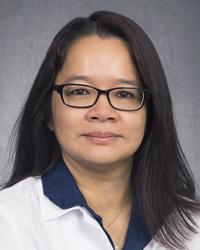
Thythy Pham, MD, MA
Thythy Pham, MD, MA is the Program Director of the Female Pelvic Medicine & Reconstructive Surgery (FPMRS) Fellowship program at Loyola Medicine. Dr. Pham joined the FPMRS division in 2017 after spending nine years in private practice in the Northwest Chicago.
She completed both her residency in obstetrics and gynecology and fellowship in female pelvic medicine and reconstructive surgery at Loyola University Medical Center.
She is board certified by the American Board of Obstetrics and Gynecology Subspecialty Female Pelvic Medicine and Reconstructive Surgery and by the American Board of Obstetrics and Gynecology. She specializes in pelvic floor disorders, such as pelvic organ prolapse and urinary incontinence.
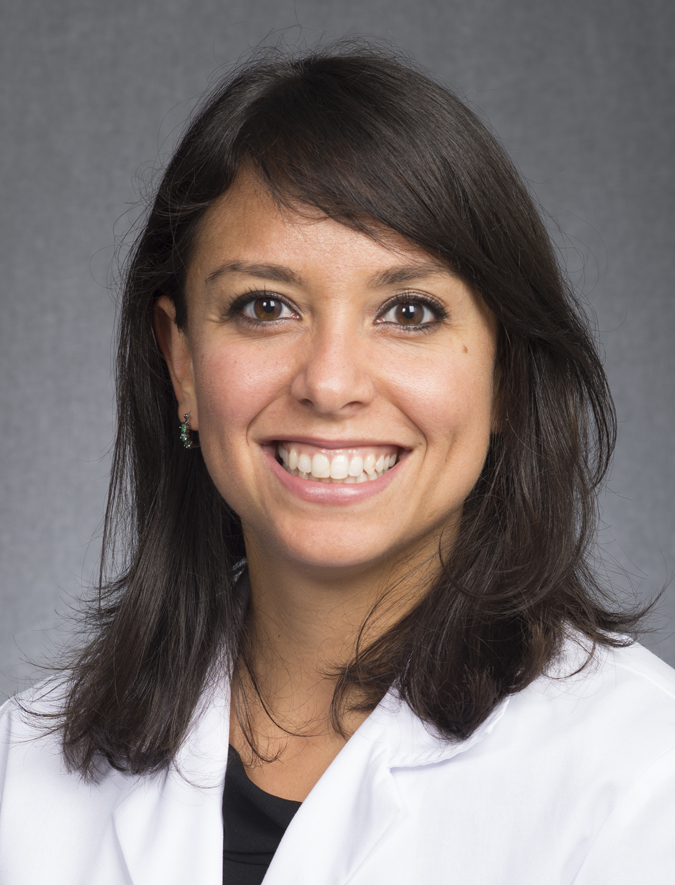
Marian Acevedo Alvarez, MD, MPH
Marian Acevedo Alvarez, MD joined the FPMRS division in 2018. She is the Program Director for the Department of OB/GYN Residency program.
She completed her residency in obstetrics and gynecology at New York University Langone Medical Center and Bellevue Hospital, New York, NY and her fellowship in female pelvic medicine and reconstructive surgery at Yale-New Haven Hospital, New Haven, CT.
She is board certified by the American Board of Obstetrics & Gynecology. She specializes in pelvic floor disorders, such as pelvic organ prolapse and urinary incontinence.
Why Choose Chicago?
Local Traffic and Weather
Transportation
- O'Hare International Airport
- Midway Airport Information
- Metra Commuter Rail System
- Elevated Train System (The Virtual El)
Lodging
- Accommodations near Loyola University Medical Center in Maywood, IL
- ChooseChicago.com: Accommodations
- Hot Rooms (Chicago hotels at discount rates)
Media and Literature
Dining and Entertainment
Museums and Galleries
- Adler Planetarium
- Art Institute of Chicago
- Chicago Academy of Sciences - Nature Museum
- Chicago Historical Society
- The Field Museum of Natural History
- Illinois State Museum
- Morton Arboretum
- Museum of Science and Industry
- Oriental Institute Museum
Other Points of Interest
- Chicago Botanic Garden
- Brookfield Zoo
- Chicago Architecture Foundation (Tours)
- Lincoln Park Zoo
- Shedd Aquarium
- Chicago Cubs – Wrigley Field
- Chicago White Sox – U.S. Cellular Field
- Chicago Bears – Soldier Field
- Chicago Bulls – United Center
- Chicago Blackhawks – United Center
- Chicago Fire – Soldier Field
- Millennium Park (City of Chicago)
